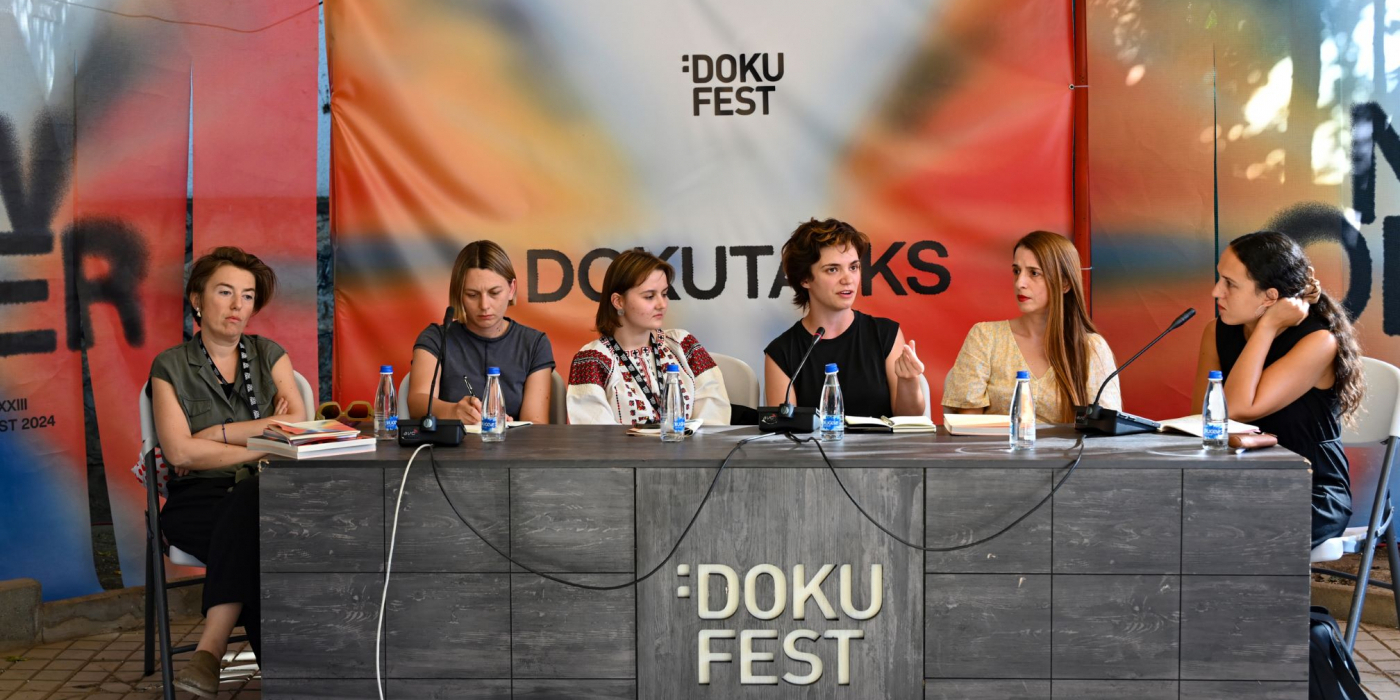09/08/2024
The subject of archiving war documentation was the topic for Wednesday’s DokuTalks, moderated by Dea Gjinovci.
The panel members were Valentyna Humenna (Ukraine War Archive), Blerta Hoçia (Humanitarian Law Center), Flaka Kokolli (director: 17 o'clock), Oksana Karpovych and Kumjana Novakova.
During this panel, the audience learned that archived materials such as images, movies, written documentation and other artifacts are important to retain and protect because they can help us piece together the past.
These archives will be useful in the future in courts of law, by governments in future negotiations, but most importantly by the surviving citizens to know their own history.
Preserving the truth of wartime stories is an extremely difficult task, but vital so that those who commit war crimes and other crimes against humanity can someday hopefully be held accountable. Without solid proof and documentation, wrongdoers will be free to commit other atrocities and others will notice there are no repercussions from war crimes.
“The panelists’ practices in the field of war documentation are acts of resistance against the denial of existences, identities and experiences that happen in war and post-war” said Dea.
Valentyna covered her work in Ukraine, which involves archiving and analyzing over 3000 telegram feeds from Russia, for use after the war by judges, historians, and survivors of the conflict. “First, we capture the data, then we need to analyze it and finally make it available to the public through a format they can use and understand.”
An exhaustive task that her organization is undertaking, but it is critical to retain the accounts and hold on to this evidence for the victims and their families after the war concludes.
Flaka Kokolli spoke about the difficulties inherent in war documentation, especially the need to protect the dignity of those lost or injured in wars. “We must remember that this is someone’s tragedy, and we must be careful to not be exploitive, or even appear to be. We know that the surviving families will watch the documentaries, or see the pictures.”
Each of the panelists shared how this daunting and heart-wrenching work has taken a personal toll upon them. The emotion was palpable as they recounted what they have had to witness in this vital task of preserving war videos, war pictures and war stories.
The hope that it will one day be used by families, courts, historians and filmmakers is what keeps them going in this emotionally brutal project.
Emily Hoy is an archivist working in Lyon, France. Working in this field is important to her, as she said “Archiving allows us to retain and maintain our history through the organization and preservation of all sorts of documents and objects. Good archives will be accessible, organized and complete to facilitate research and discovery.”
Those who don’t know the past are doomed to repeat it, as the old saying goes. If we don’t know what happened, how can we know why it happened, and how to prevent it happening again? By archiving, we can remember the past, and change the future.
By: Scott Hoy
Photo: Tughan Anit.
*The Focus Ukraine project is implemented by DokuFest Kosovo and Docudays UA with the support of IZOLYATSIA foundation, Trans Europe Halles and Malý Berlín and co-financed by the ZMINA: Rebuilding program, created with the support of the European Union under a dedicated call for proposals to support Ukrainian displaced people and the Ukrainian Cultural and Creative Sectors.




